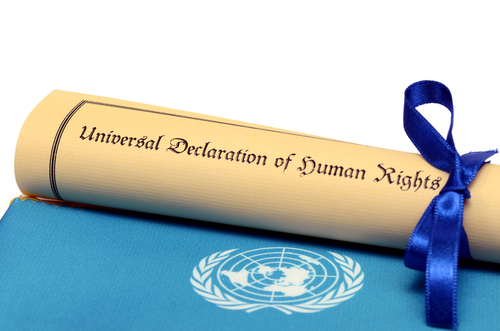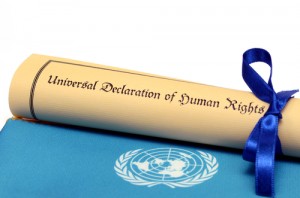UN Expert Highlights Need to Protect Dementia Patients’ Human Rights

 An independent expert from the United Nations recently alerted the organization’s member states on the need to protect dementia patients, especially older ones, from stigmatization, discrimination, victimization, and neglect, as he spoke to celebrate the World Alzheimer’s Day, which is marked annually on September 21th. The UN believes that concerted actions are needed in order to assure better quality of life for those patients.
An independent expert from the United Nations recently alerted the organization’s member states on the need to protect dementia patients, especially older ones, from stigmatization, discrimination, victimization, and neglect, as he spoke to celebrate the World Alzheimer’s Day, which is marked annually on September 21th. The UN believes that concerted actions are needed in order to assure better quality of life for those patients.
The UN Independent Expert on the enjoyment of all human rights by older persons, Rosa Kornfeld-Matte, called for an agreement between nations to assure that older patients who suffer from Alzheimer’s disease and dementia can still benefit from their human rights, as she believes that “the voices of older people and those who look after them need to be heard in a meaningful way.”
“The whole of society shares responsibility for the welfare of older persons with dementia and is called upon to find comprehensive solutions. States need to take appropriate action to ensure that older persons affected by dementia can still participate in the public life of their communities,” stated Rosa Kornfeld-Matte. This includes providing accessible information and the support they need, both human and technical, to facilitate their continued participation in public life and in the decisions that affect them.
Causing several brain illnesses and affecting the memory, behavior, and the ability to conduct normal activities, dementia and Alzheimer’s often leads older patients to also lose their independence and suffer violations of their human rights, through abuse, neglect, or discrimination. As the symptoms increase and the disease progresses, autonomy tends to decrease and patients tend to have fewer opportunities to enjoy their political, civil, economic, social, and cultural rights.
[adrotate group=”3″]
“Dementia should not be considered as a normal part of aging. Dementia is a disease, and can be the result of multiple factors,” she added. “States and other stakeholders need to raise awareness and to adopt a human rights-based approach to protect the rights and dignity of older persons with dementia.”
Alzheimer’s affects about 35.6 million people in the world, according to the UN World Health Organization (WHO), being the most common cause of dementia and contributing to 70 percent of the cases of the condition. The number of patients suffering from Alzheimer’s is, however, expected to double by 2030 and triple by 2050.






